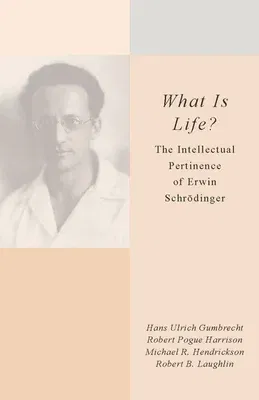Hans Ulrich Gumbrecht
(Author)What Is Life?: The Intellectual Pertinence of Erwin SchrödingerPaperback, 28 February 2011

Qty
1
Turbo
Ships in 2 - 3 days
In Stock
Free Delivery
Cash on Delivery
15 Days
Free Returns
Secure Checkout

Print Length
160 pages
Language
English
Publisher
Stanford University Press
Date Published
28 Feb 2011
ISBN-10
0804769168
ISBN-13
9780804769167
Description
Product Details
Book Format:
Paperback
Country of Origin:
US
Date Published:
28 February 2011
Dimensions:
21.34 x
13.97 x
1.52 cm
ISBN-10:
0804769168
ISBN-13:
9780804769167
Language:
English
Location:
Stanford, CA
Pages:
160
Publisher:
Weight:
226.8 gm